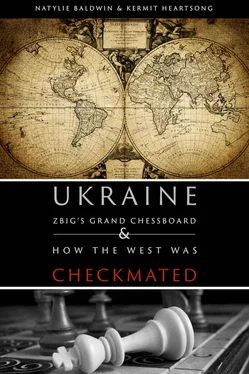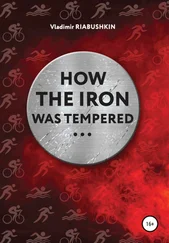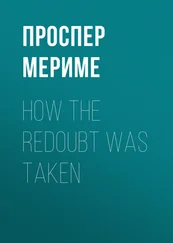Kermit Heartsong - Ukraine - ZBIG's Grand Chess Board & How The West Was Checkmated
Здесь есть возможность читать онлайн «Kermit Heartsong - Ukraine - ZBIG's Grand Chess Board & How The West Was Checkmated» весь текст электронной книги совершенно бесплатно (целиком полную версию без сокращений). В некоторых случаях можно слушать аудио, скачать через торрент в формате fb2 и присутствует краткое содержание. Год выпуска: 2015, Жанр: Политика, на английском языке. Описание произведения, (предисловие) а так же отзывы посетителей доступны на портале библиотеки ЛибКат.
- Название:Ukraine: ZBIG's Grand Chess Board & How The West Was Checkmated
- Автор:
- Жанр:
- Год:2015
- ISBN:нет данных
- Рейтинг книги:4 / 5. Голосов: 1
-
Избранное:Добавить в избранное
- Отзывы:
-
Ваша оценка:
- 80
- 1
- 2
- 3
- 4
- 5
Ukraine: ZBIG's Grand Chess Board & How The West Was Checkmated: краткое содержание, описание и аннотация
Предлагаем к чтению аннотацию, описание, краткое содержание или предисловие (зависит от того, что написал сам автор книги «Ukraine: ZBIG's Grand Chess Board & How The West Was Checkmated»). Если вы не нашли необходимую информацию о книге — напишите в комментариях, мы постараемся отыскать её.
Ukraine: ZBIG's Grand Chess Board & How The West Was Checkmated — читать онлайн бесплатно полную книгу (весь текст) целиком
Ниже представлен текст книги, разбитый по страницам. Система сохранения места последней прочитанной страницы, позволяет с удобством читать онлайн бесплатно книгу «Ukraine: ZBIG's Grand Chess Board & How The West Was Checkmated», без необходимости каждый раз заново искать на чём Вы остановились. Поставьте закладку, и сможете в любой момент перейти на страницу, на которой закончили чтение.
Интервал:
Закладка:
In September of 2013, a gathering of Western elites met in Yalta, Crimea to strategize on the future of Ukraine’s relationship to the European Union. Paid for by Ukraine’s second wealthiest oligarch, Viktor Pinchuk, the conference was attended by, among others, Bill and Hillary Clinton, Dominque Strauss-Kahn, Gerhard Schroeder, Petro Poroshenko, Viktor Yanukovych, Lawrence Summers, Robert Zoellick, David Petraeus, and Bill Richardson, who touted the supposed benefits of fracking.
The goal of the meeting was breaking Ukraine’s ties with Russia and planting it firmly in the EU/NATO camp. Also in attendance, however, was Putin’s economic advisor, Sergey Glazyev, who tried to explain that the promises being made by the West to Ukraine amounted to a chimera. Glazyev pointed out that Ukraine had heavy foreign debts and that the increase in imports from the West that would result from the agreement would exacerbate the problem, necessitating either a default on its debts or a hefty bailout (Johnstone 2014).
In the same month, Polish Prime Minister Donald Tusk and his foreign minister, Radoslaw Sikorski, invited eighty-six members of Ukraine’s Right Sector, a National Socialist political organization (neo-Nazis), to partake in a university exchange program at Warsaw’s University of Technology (Meyssan 2014).
However, as acknowledged by their official schedule, the eighty-six Right Sector members, many of whom were over forty years of age, never went to the University of Technology. Instead they went to the police-training center in Legionowo, Masovia, Poland (Meyssan 2014). Over the course of the next four weeks, the Right Sector members received training in:
•crowd management
•person recognition
•combat tactics
•command skills
•behavior in crisis situations
•protection against gases used by police
•erecting barricades, and
•sniper shooting skills
The Polish newspaper, the Polish Weekly , has verified that the training took place via a number of photos that showed the Right Sector participants in full Nazi regalia and insignia taking instruction from their Polish trainers (Meyssan 2014).
In October of 2013Ukraine’s negotiations with both the West, via the IMF, and Russia, via the Commonwealth of Independent States (CIS), would ultimately lead to its decision about what orbit it preferred.
The motivations of the West were manifold and predicated on the usual suspects — asset pillage (gas, shale, land, gold reserves), extortion, via IMF “austerity,” a pliable West friendly “changed-in” regime and a geostrategic move via NATO boots in Ukraine to encircle or checkmate Russia, long a goal of Grand Chessboard fundamentalists.
The West presented a proposal to Yanukovych via the IMF, which called for the doubling of gas prices and electricity for both households and businesses, slashing state funds for school children and the elderly, devaluing the Ukrainian currency, and lifting the ban on the sale of Ukraine’s rich agricultural lands, which would open them to outside investors. Ukraine was also informed that it would have to cut its ties with its major economic partners, Russia and other members (Armenia, Belarus, etc.) of the Commonwealth of Independent States (CIS) (Nazemroaya 2014). Ukraine was, in turn, promised for its concessions the sum of $4 billion. It was an offer that President Yanukovych couldn’t refuse, despite the paltry amount offered to Ukraine. As outlined in the article, “Patriotic Heresy vs. the New Cold War,” Professor Stephen Cohen (2014) lays out the reasoning behind the proposal put forth by the West:
Fact: The EU proposal was a reckless provocation compelling the democratically elected president of a deeply divided country to choose between Russia and the West. So too was the EU's rejection of Putin's counterproposal of a Russian-European-American plan to save Ukraine from financial collapse. On its own, the EU proposal was not economically feasible. Offering little financial assistance, it required the Ukrainian government to enact harsh austerity measures and would have sharply curtailed its longstanding and essential economic relations with Russia. Nor was the EU proposal entirely benign. It included protocols requiring Ukraine to adhere to Europe's “military and security” policies — which meant in effect, without mentioning the alliance, NATO. In short, it was not Putin's alleged “aggression” that initiated today's crisis but instead a kind of velvet aggression by Brussels and Washington to bring all of Ukraine into the West, including (in the fine print) into NATO.
To make things even more interesting, the West asked for additional concessions, which were neatly contained within the “fine print.” For example, Yanukovych and the various Ukrainian oligarchs quickly realized that the association agreement would give advantage to EU companies over their own companies. The EU companies (and oligarchs) would thus be able to dismantle, replace, or absorb the Ukrainian oligarch’s companies. Further, Ukraine would have to soften or eliminate trade laws and regulations, which would be extremely disastrous to their continued survival. And lastly, and most interestingly, the West wanted the former prime minister, Yulia Tymoshenko, who had been convicted of embezzlement and abuse of power, released from jail. The combination of the various wants from the West would find Ukraine experiencing decades if not a half century of economic destitution and oblivion (Lendman 2014).
The motivations of Moscow were manifold as well. Moscow sought a relatively stable and East-leaning governing body in the Ukrainian border state. It also sought to keep the Ukraine neutral of any geostrategic military alliance (NATO) that would compromise its national security. Moscow was, of course, not keen on the idea of short-, medium- or long-range missiles on its border either. And the idea of losing Crimea — its only warm water port, an important naval asset, and part and parcel of Russia for nearly two hundred years — would be a clear redline.
Russia’s proposal to Yanukovych would come in the form of a $15 billion dollar loan, the slashing of gas prices by one- third, increased trade, and continued integration via its various industrial and military manufacturing relationships.
The fine print on the Russian contract, if one has a fairly good imagination, may have read: sign with the West and there’s a high probability that you will be freezing this winter; and NATO is a redline, beware.
On November 20, 2013—the day before the Yanukovych government decided not to sign the Association Agreement with the European Union, Ukrainian deputy Oleg Tsarov, an elected representative of the Regional Party gave a speech before Ukraine’s Rada (Parliament)(Messay 2014).
Tsarov’s three minute and forty-five second speech was heckled continually by other Rada members throughout. Nonetheless, Tsarov delivered his speech, which presaged events that would take place on February 21, 2014, almost three months to the date. Tsarov noted the following in his speech (full text below — original translation):
In my role as a representative of the Ukrainian people activist of the organization “Volya” turned to me providing clear evidence, that within our territory with the support and direct participation of the US Embassy [in Kiev] the “TechCmp” project is realised…under which preparations are being made for a civil war in Ukraine. The “TechCamp” project prepares specialist for informational warfare and the discrediting of state institutions using modern media. Potential revolutionaries for organising protests and for toppling the Stat Order. The project is currently overseen and under the responsibility of the US ambassador to Ukraine Geoffrey R. Pyatt. After the conversation with the organisation “Volya” I have learned they succeeded to access facilities of “TechCamp” disguising as a team of IT specialists. To their surprise, briefings on peculiarities of modern media were held. American instructors explained how social networks and Internet technologies can be used for targeted manipulation of public opinion as well as to activate protest potential, to provoke violent unrest on the territory of Ukraine, radicalisation of the population triggering infighting [sic]. American instructors presented examples of successful use of social networks used to organise protests in Egypt, Tunisia and Libya. “TechCamp” is currently holding conferences throughout Ukraine. A total of five events have been held so far. About 300 people were trained as operatives, which are now active throughout Ukraine. Recent conference too place Nov. 14–15 [2013] in the heart of Kiev on the Embassy of the United States of America! You tell me which country in the world would allow a NGO to operate out of the US Embassy? This is disrespectful to the Ukrainian government and against the Ukrainian people! I appeal to the constitutional Authorities of Ukraine with the following question: is it conceivable that representatives of the US Embassy which organise the “TechCamp” Conferences misuse their diplomatic mission? UN Resolution of 21 December 1965 regulates inadmissibility of interference in the internal affairs of a state to protect its independence and its sovereignty in accordance with paragraphs one, two, and five. I ask you to consider this as an official beseech to pursue an investigation of this case. Thank you. (Messayan 2014)
Читать дальшеИнтервал:
Закладка:
Похожие книги на «Ukraine: ZBIG's Grand Chess Board & How The West Was Checkmated»
Представляем Вашему вниманию похожие книги на «Ukraine: ZBIG's Grand Chess Board & How The West Was Checkmated» списком для выбора. Мы отобрали схожую по названию и смыслу литературу в надежде предоставить читателям больше вариантов отыскать новые, интересные, ещё непрочитанные произведения.
Обсуждение, отзывы о книге «Ukraine: ZBIG's Grand Chess Board & How The West Was Checkmated» и просто собственные мнения читателей. Оставьте ваши комментарии, напишите, что Вы думаете о произведении, его смысле или главных героях. Укажите что конкретно понравилось, а что нет, и почему Вы так считаете.











